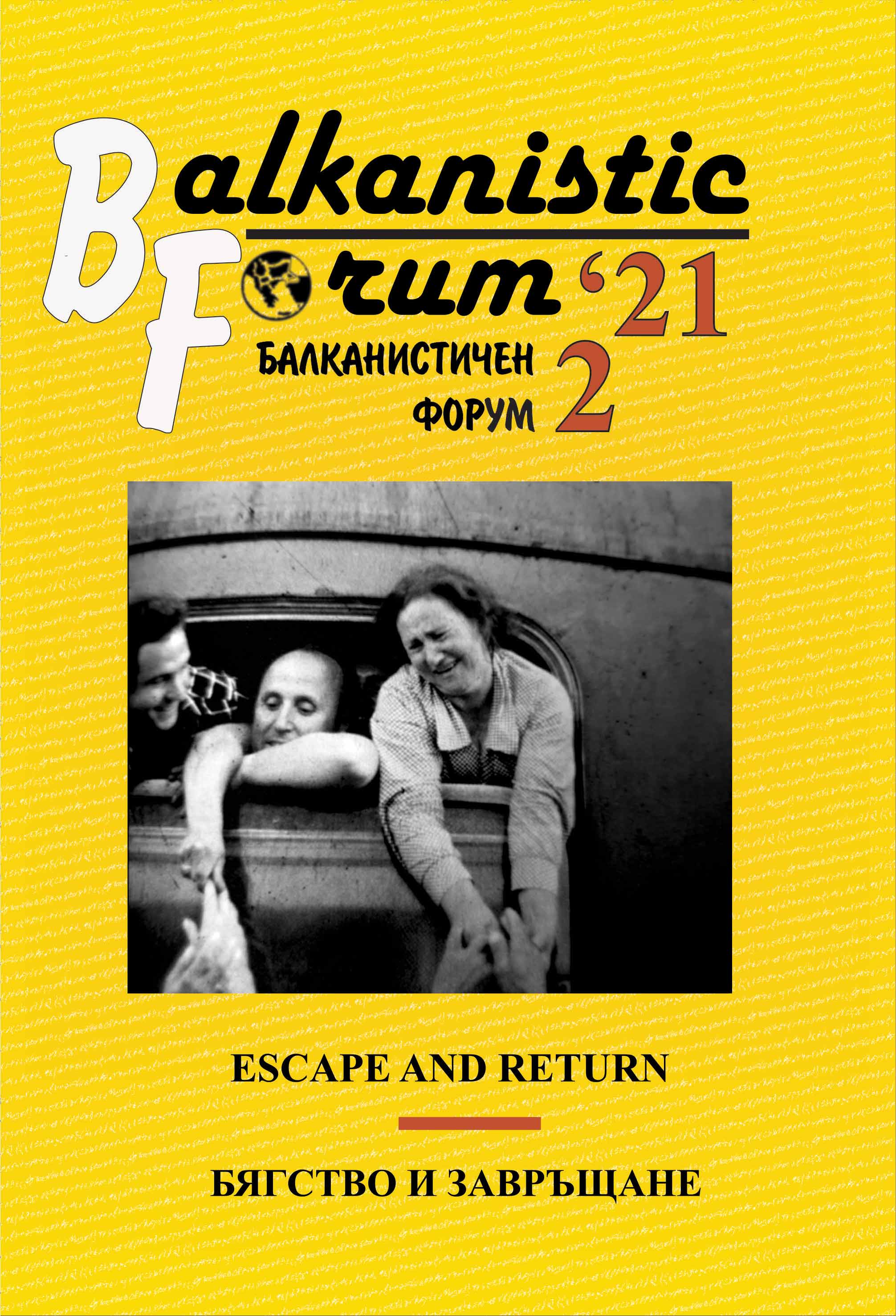Inclusion and Exclusion: Image and Perceptions of Turkish Migrants in Bulgaria and Turkey
Inclusion and Exclusion: Image and Perceptions of Turkish Migrants in Bulgaria and Turkey
Author(s): Begüm Hergüvenç, Mehmet HacısalihoğluSubject(s): History, Social Sciences, Cultural history, Sociology, Ethnohistory, Migration Studies
Published by: ЮГОЗАПАДЕН УНИВЕРСИТЕТ »НЕОФИТ РИЛСКИ«
Summary/Abstract: This paper deals with the image and perceptions that Turkish migrants from Bulgaria had about the Turks in Turkey, the Turkish state, Bulgarians, and the Bulgarian state both before and after 1989. Perceptions of the Turkish minority among the Bulgarian communist elite are analysed according to published reports and statements made by Bulgarian Communist Party members. The perceptions that Turkish migrants had about Bulgaria and Turkey are the main focus of this study which is based on field research and interviews conducted with Turkish migrants from Bulgaria now living in Turkey. This article shows that these migrants held both positive and negative perceptions of Bulgaria and Turkey, largely depending on the context. The Turkish minority in Bulgaria was regarded as a problem for the Communist government and as an in-ternal enemy to the Bulgarian state. Moreover, the locals in Turkey regarded the Turkish migrants from Bulgaria as “Bulgarian migrants” who possessed a non-Muslim or “liberal” culture. In this way, they experienced exclusionary attitudes from their neighbours both in Bulgaria and in Turkey. The Turks of Bulgaria perceived the Communist regime as oppressive and as a threat to their Turkish identity. Despite their dislike of the regime, prior to the period of forced assimilation that began in 1984, they still possessed a relatively positive perception about the Bulgarian people. Interestingly, while they perceive Turkey as their homeland, they nonetheless held certain prejudices against the local population in Turkey. All of these various interaction helped to strengthen their group identity as migrants from Bulgaria.This paper deals with the image and perceptions that Turkish migrants from Bulgaria had about the Turks in Turkey, the Turkish state, Bulgarians, and the Bulgarian state both before and after 1989. Perceptions of the Turkish minority among the Bulgarian communist elite are analysed according to published reports and statements made by Bulgarian Communist Party members. The perceptions that Turkish migrants had about Bulgaria and Turkey are the main focus of this study which is based on field research and interviews conducted with Turkish migrants from Bulgaria now living in Turkey. This article shows that these migrants held both positive and negative perceptions of Bulgaria and Turkey, largely depending on the context. The Turkish minority in Bulgaria was regarded as a problem for the Communist government and as an internal enemy to the Bulgarian state. Moreover, the locals in Turkey regarded the Turkish migrants from Bulgaria as “Bulgarian migrants” who possessed a non-Muslim or “liberal” culture. In this way, they experienced exclusionary attitudes from their neighbours both in Bulgaria and in Turkey. The Turks of Bulgaria perceived the Communist regime as oppressive and as a threat to their Turkish identity. Despite their dislike of the regime, prior to the period of forced assimilation that began in 1984, they still possessed a relatively positive perception about the Bulgarian people. Interestingly, while they perceive Turkey as their homeland, they nonetheless held certain prejudices against the local population in Turkey. All of these various interaction helped to strengthen their group identity as migrants from Bulgaria.
Journal: Балканистичен Форум
- Issue Year: 30/2021
- Issue No: 2
- Page Range: 38-58
- Page Count: 21
- Language: English
- Content File-PDF

